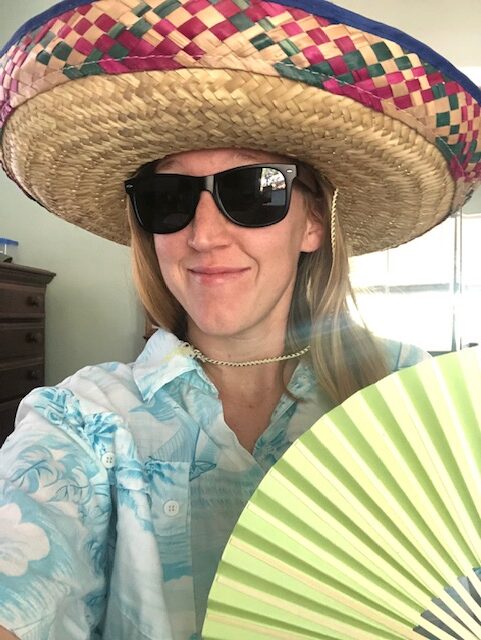As we all know, this is an unprecedented challenge on every level, affecting students of all ages.
Teenage students specifically have slightly different developmental needs that are impacted by the current situation we find ourselves in. However, it is possible to work to meet these needs despite the limitations. All of our teachers work very hard on this, just as we know teachers across the globe are.
Our high school students have been adapting and working in ways that work for them, ways that allow for balance between social interactions and building independence, mental well-being and academic progress.
*We have previously mentioned and it still holds true- we share how and why our distance learning has been successful in the hopes that it will also help other educators and parents.*
Here is what we have found is working best to help meet the needs of our teenage students:
Mutual respect, trust, and understanding.
My kids know I respect and care about them as individuals first and foremost. In turn, they respect me and understand that the work and discussions we have are meaningful. They know talking to them is my favorite part of the week. They know they can let me know if they will be late on turning something in. In addition, if they are struggling with a certain assignment or concept, they know they can ask me for help. I understand what else they have going on in their lives and minds, and I trust them to do what they need.
Keeping a consistent schedule, with the ability to be flexible.
Once we established a schedule that works for us, we’ve stuck to it. This goes for our virtual assignments and meetings (more on this below). As mentioned, the kids know I trust them to do what works best for them, they know the work is valuable, and in turn, they are consistently completing what they need. Because we are flexible, I can “meet” them a bit early if a change does come up. They are all holding themselves accountable.
Multiple virtual meetings throughout the week.
This connects to the two factors listed above. These meetings give us a chance to catch up, chat about highlights (and maybe some lowlights) of our weeks, then focus on our lessons, assignments, or discussions. There is no judgment. There is positivity, sharing, and learning. There is active listening and encouragement among all the kids. My students also have the opportunity to hold one-on-one or small group meetings with me, to discuss whatever they need.

Variety and balance of assignments.
Through a combination of videos, written responses, discussions, graphic organizers, vocab and creative activities, virtual labs, tutorials, and more. Many of these have been modified from college-level content or beyond. All are relevant, and some are even connected to this Covid-19 crisis we are in.
- For example, we explained and analyzed rhetoric, often utilizing the Purdue Owl and other college writing lessons. Some of them chose to use examples from the current global health crisis for their analyses. I gave them options and respected their choices.
- My high schoolers also completed a very difficult lab from Allen Institute for Cell Science. (very cool resource for any biology teachers!)
- Partner work has been included, and it looks a bit different of course. But still gives the chance to “work together” on an assignment, share and build off of each other’s ideas and learn together.
- Some of my kids have even chosen to focus their Inquiry Projects on Covid-19, truly using this as a learning experience. Some will focus on the science and health aspects, while others will look at the human connection and emotional aspects.

Consistent reflection and feedback.
Helpful for them and me. I can see what is working for them, what was difficult, what we need to focus more on, and how to improve moving forward. Also gives them a chance to write what they are thinking and feeling, an important practice for all of us and our mental health.
Having some fun!
- Making jokes, chatting about things non-academic related before we discuss work, surprising my kids by dressing up in a funny hat and sunglasses and sitting outside under palm trees, playing some games, keeping things light when necessary. All important.
While this distance learning is not ideal and we of course miss our students, we are all continuing to make the best of it. We are constantly working to provide support in meeting the needs of our kids.
We know we will get through this, use it as a learning and growing experience, and maybe even be better in the long run because of it.


